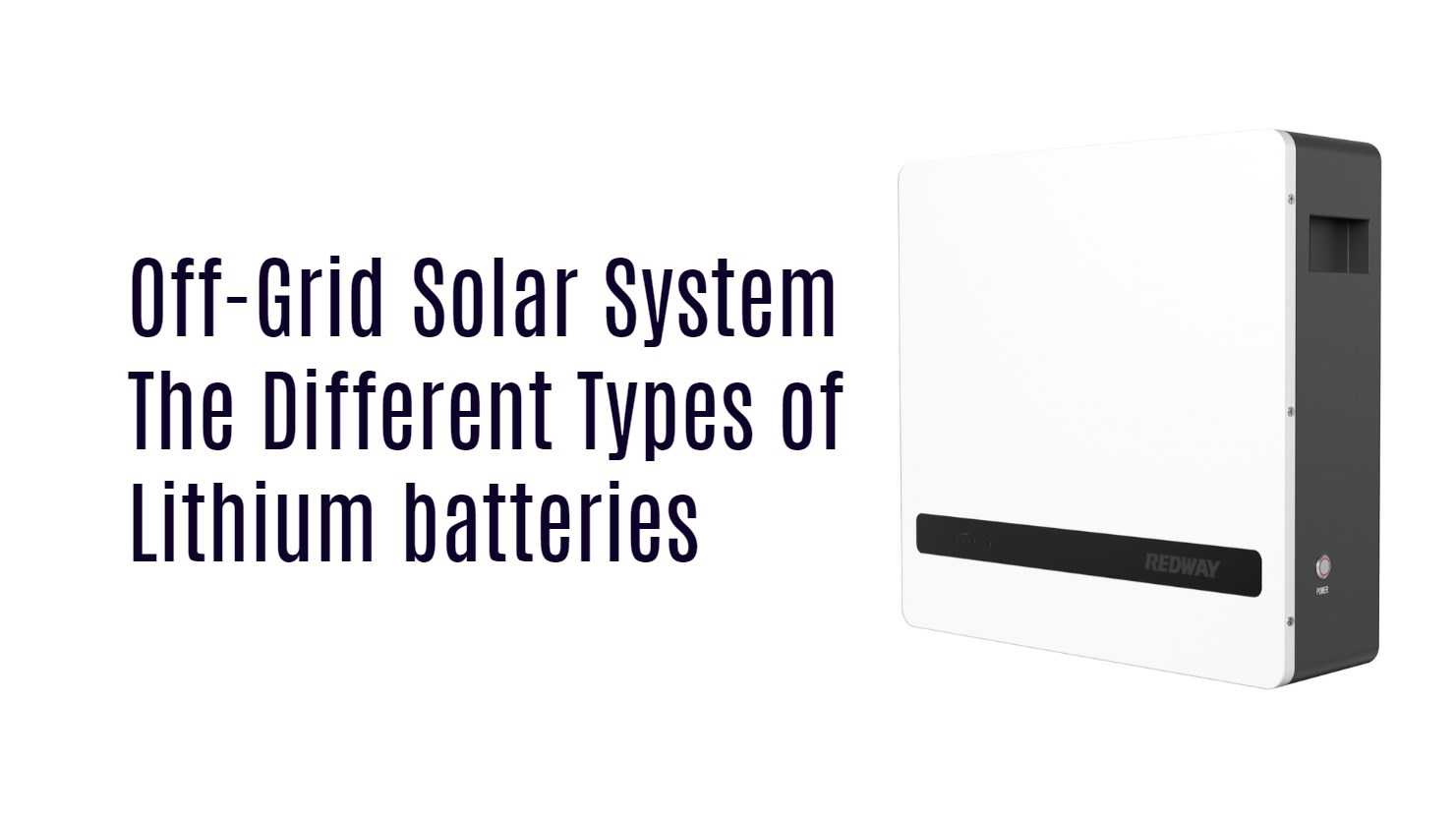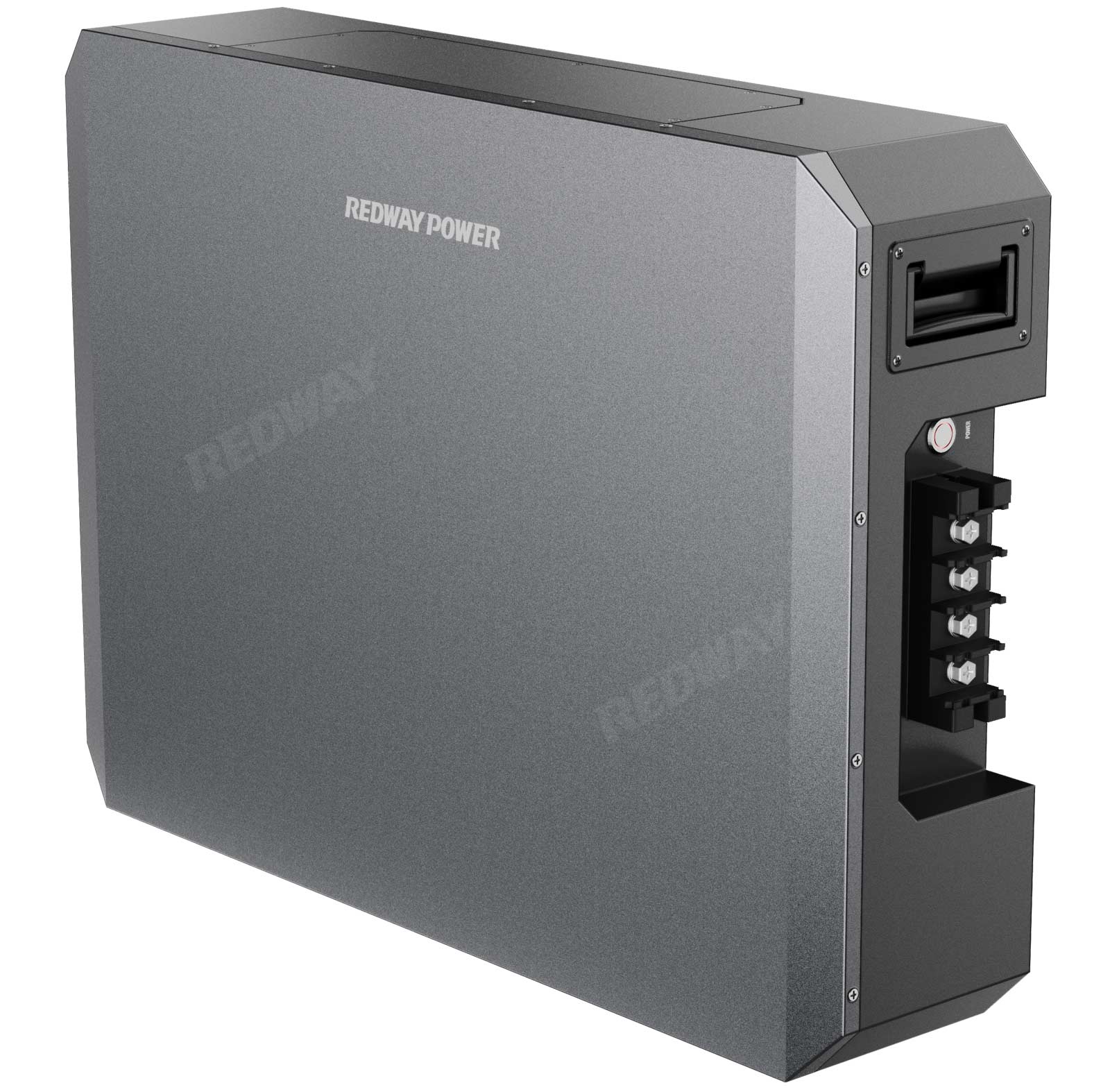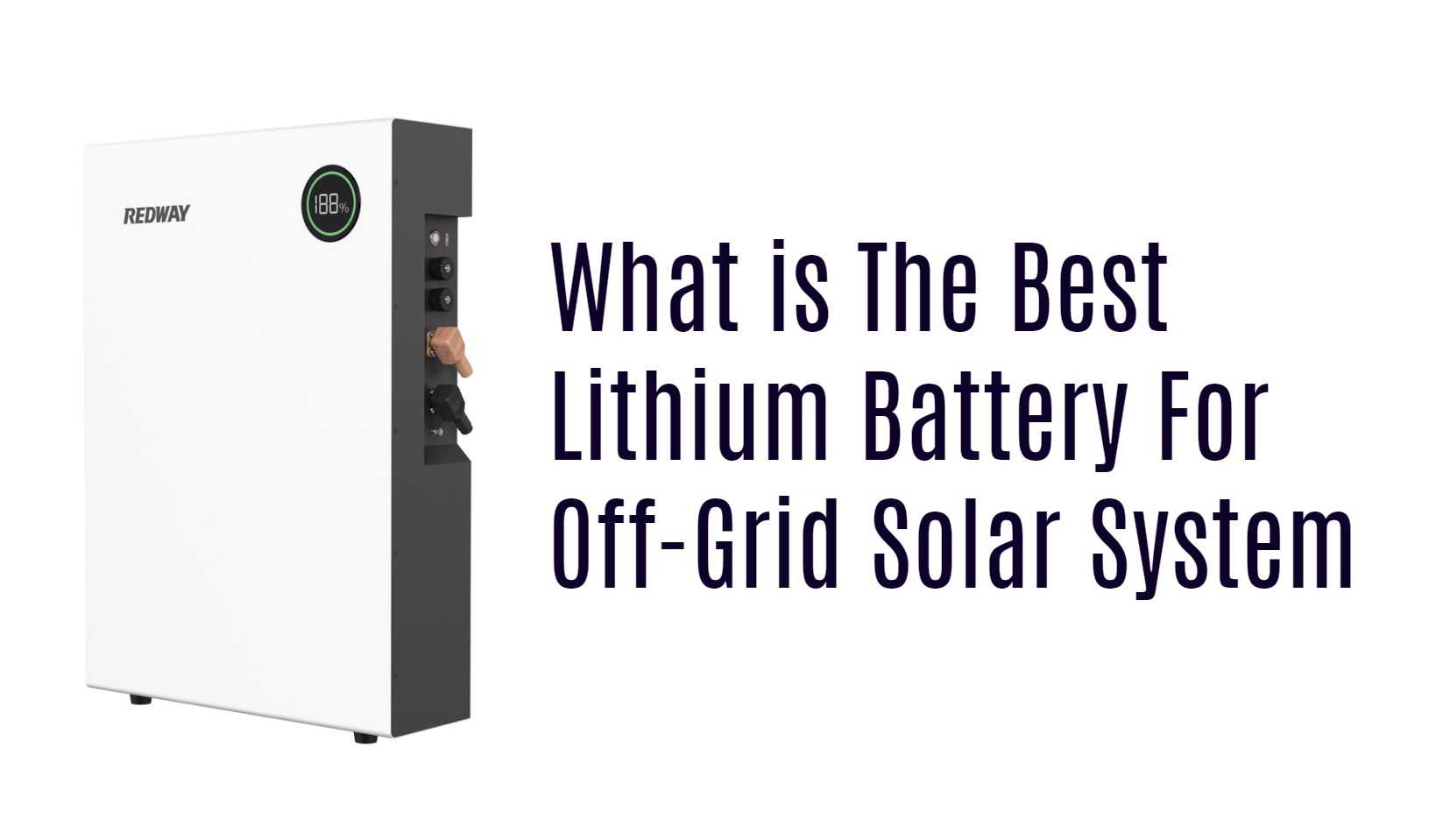Are you looking to power your off-grid solar system with the best lithium battery? With so many options available, it can be overwhelming to choose the right one. Lithium batteries have become increasingly popular due to their high energy density and long lifespan. In this blog post, we will explore the different types of lithium batteries, their pros and cons, and ultimately help you determine what is the best lithium battery for your off-grid solar system needs. Let’s dive in!
Lithium Batteries for Solar Systems
Lithium batteries are becoming the go-to choice for powering solar systems due to their high energy density and long lifespan. These types of batteries are designed to store electrical energy from solar panels during the day, which can then be used at night or during cloudy weather.
One of the most significant advantages that lithium batteries have over traditional lead-acid batteries is their higher discharge rate. Lithium batteries can discharge up to 100% of their capacity without causing damage, while lead-acid batteries should never be discharged below 50%.
Furthermore, lithium-ion technology allows for a smaller footprint and lighter weight compared to other battery types. This makes them ideal for off-grid applications where space is limited or transportation is required.
Another advantage of lithium-ion technology is its ability to handle multiple charge cycles with minimal degradation in performance. This means that your battery will last longer and require less maintenance over time than other types of rechargeable cells. Redway is a top lithium battery module factory from China.
If you’re looking for a reliable and efficient way to power your off-grid solar system, then it’s hard to go wrong with a good quality lithium-ion battery pack!
The Different Types of Lithium batteries
There are several types of lithium batteries that can be used for solar systems. The most common ones include Lithium Iron Phosphate (LiFePO4), Lithium Polymer (LiPo), and Lithium Nickel Manganese Cobalt Oxide (NMC).
LiFePO4 batteries are known for their safety, stability, and long lifespan. They have a high energy density and can withstand extreme temperatures without losing performance.
On the other hand, LiPo batteries are more lightweight and flexible than LiFePO4 but have a shorter lifespan due to chemical degradation over time.
NMC batteries offer higher energy density than LiFePO4 but come with a higher risk of thermal runaway if not managed properly. They also tend to degrade faster compared to LiFePO4. If you are looking to buy power storage walls at wholesale prices, China is a great place to start your search. With a thriving manufacturing industry and a competitive market, Chinese suppliers offer a wide range of options for businesses looking to purchase these products in bulk. By buying power storage walls at wholesale prices, businesses can save money and gain a competitive edge in their respective markets.
Ultimately, the choice of which type of lithium battery to use will depend on your specific needs and budget. It’s important to consider factors such as safety, efficiency, reliability, cost-effectiveness, size, weight, and temperature resistance when selecting the best option for your off-grid solar system.

Pros and Cons of Lithium Batteries
Lithium batteries are a popular choice for off-grid solar systems due to their long lifespan, light weight, and high energy density. However, like any other technology, they come with their own set of pros and cons.
One significant advantage of lithium batteries is that they have a longer lifespan compared to lead-acid batteries. Lithium batteries can last up to ten years or more when properly maintained. Additionally, they are much lighter than lead-acid batteries making them easier to transport and install.
Another benefit of using lithium batteries is their higher energy density. This means that they can store more energy in the same amount of space as traditional lead-acid batteries, allowing for smaller battery banks in off-grid solar systems.
However, one major disadvantage of lithium-ion cells is that they are costly compared to traditional lead-acid cells. Moreover, these expensive cells require additional control circuitry which adds extra cost.
Another drawback is that lithium-ion cells cannot be overcharged or undercharged as doing so would damage the battery permanently.
Though if you’re looking for a reliable power source for your solar system then considering both its advantages and disadvantages will help you make an informed decision on whether it’s right for you.
What is the best Lithium Battery for Off Grid Solar System?
When it comes to choosing the best lithium battery for your off-grid solar system, there are a few key factors you should consider. One of the most important is the battery’s capacity – this will determine how much energy it can store and therefore how long your system can run without access to an external power source.
Another important factor is the battery’s cycle life – this refers to how many times you can charge and discharge the battery before its performance starts to degrade. Lithium batteries generally have a longer cycle life than other types of batteries, which makes them ideal for use in off-grid solar systems.
You’ll also want to consider factors such as weight, size, and cost when choosing a lithium battery for your system. While larger batteries may offer more capacity, they may also be heavier and more expensive.
Ultimately, the best lithium battery for your off-grid solar system will depend on your specific needs and requirements. It’s always wise to do plenty of research before making any decisions so that you can ensure that you’re getting a high-quality product that meets all of your needs at an affordable price point.
How to choose the right size battery for your system
When it comes to choosing the right size battery for your off-grid solar system, there are a few important factors you should consider. First and foremost, you’ll want to think about how much energy your system will need to store each day.
To determine this, start by looking at your daily electricity usage and calculating how much energy you would need if there were no sunlight available. This way you can get an idea of how many batteries you’ll need in total.
Next, take into consideration the climate in your area as well as any seasonal changes that might affect sunlight availability. If you live in an area with long periods of cloudy weather or harsh winters, then it may be wise to invest in larger batteries that can store more energy during these times.
Don’t forget to consider the cost of the batteries themselves – larger batteries tend to be more expensive than smaller ones. Ultimately, finding the right balance between capacity and price is key when choosing the ideal battery size for your off-grid solar system.

Conclusion
To sum up, choosing the best lithium battery for your off-grid solar system can be a challenging task. However, by taking into consideration the factors mentioned in this article such as capacity, lifespan, power output and budget; you are more likely to make an informed decision.
Remember that investing in a high-quality lithium battery is crucial for achieving optimal efficiency and durability of your solar system. Always prioritize quality over price when it comes to purchasing batteries as it will save you money in the long run.
By opting for a reliable lithium battery that caters to all your energy needs, you can enjoy uninterrupted power supply while reducing your carbon footprint significantly. With these insights at hand, we hope you’re ready to choose the most suitable lithium battery for your off-grid solar system!




